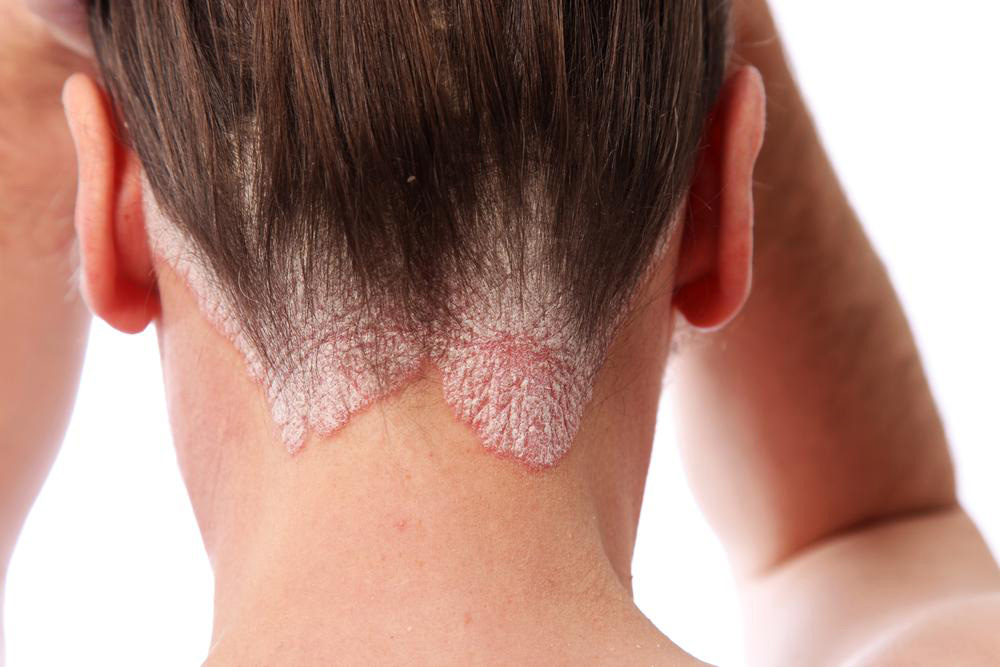Comprehensive Guide to Effective Shampoos for Managing Scalp Psoriasis Symptoms
This comprehensive guide explores effective shampoos for managing scalp psoriasis symptoms. It covers choosing the right products, proper application techniques, and lifestyle tips to reduce discomfort and improve scalp health. Discover how to control flare-ups safely with expert-approved treatments tailored for long-term relief and confidence.

Comprehensive Guide to Effective Shampoos for Managing Scalp Psoriasis Symptoms
Scalp psoriasis is a chronic autoimmune skin condition that affects many individuals worldwide. Characterized by the development of red, inflamed patches covered with silvery scales, this condition often causes significant discomfort, including itching, flaking, and soreness. When left untreated or improperly managed, these patches can extend beyond the scalp, impacting the forehead, behind the ears, and even the neck, leading to social embarrassment and decreased quality of life. Fortunately, modern dermatological advancements have led to the development of specialized medicated shampoos designed specifically to alleviate scalp psoriasis symptoms safely and effectively. These shampoos play a crucial role in managing the condition, reducing discomfort, and improving scalp health.
Choosing the Most Suitable Shampoo for Scalp Psoriasis
One of the key aspects of managing scalp psoriasis involves selecting the right shampoo tailored to your specific needs. Not all shampoos are created equal; they contain different active ingredients aimed at targeting diverse symptoms such as inflammation, scaling, and itching. Recognizing which ingredients work best for your condition is essential for effective treatment. Most over-the-counter and prescription shampoos include FDA-approved ingredients like salicylic acid and coal tar, each providing unique benefits. Salicylic acid functions as a keratolytic agent, softening and loosening scales, which makes it easier to remove buildup during washing. This helps reduce the thickness of psoriatic plaques and allows other topical treatments to penetrate more effectively. However, it may temporarily increase flaking or dryness if used excessively. Coal tar is another widely used ingredient that helps combat itching and slowly inhibits abnormal skin cell proliferation, thus reducing flare-ups. It also possesses anti-inflammatory properties but might come with a strong odor and can cause mild irritation in sensitive scalps.
Popular shampoos containing these ingredients include products like Dermasolve, Walgreens T+ Salicylic Acid, and Dead Sea Spa MAGIK. For coal tar-based formulations, trusted options include Neutrogena T-Gel and Psoriatrax. Additionally, some shampoos combine these actives with moisturizing agents to balance scalp hydration and prevent dryness. It is advisable to carefully read product labels and choose shampoos formulated specifically for psoriasis management.
Proper Usage and Application Guidelines
Using scalp psoriasis shampoos properly is essential to optimize their effectiveness while minimizing potential adverse effects. To use these shampoos, apply a generous amount onto wet hair and gently massage into the scalp – avoiding vigorous scrubbing to prevent irritation. Leave the shampoo on the scalp for approximately 5-10 minutes, allowing the active ingredients to penetrate deeply into affected areas. Rinse thoroughly with lukewarm water. Depending on the severity of your symptoms, reapplication might be necessary, typically up to twice weekly. For sensitive or fragile scalps, it is recommended to limit use to once a week or as advised by a dermatologist.
It is equally important to follow the specific instructions provided with each product. After using medicated shampoo, hindered by the potential for scalp dryness or irritation, you may want to follow up with a gentle, fragrance-free conditioner. Pregnant or nursing women should consult their healthcare provider before beginning any medicated scalp treatment, as some ingredients may not be suitable during pregnancy or breastfeeding. If you are already on other medications or suffering from scalp cuts or open sores, it is prudent to seek medical advice to avoid complications. Alternating between different medicated shampoos can also help prevent decreased responsiveness and maintain ongoing symptom control.
Precautionary Measures and Lifestyle Tips
While medicated shampoos are effective in reducing the hallmark symptoms of scalp psoriasis, they may sometimes lead to side effects, including dryness, roughness, or scalp irritation. To counteract these issues, incorporating nourishing natural oils such as olive oil, coconut oil, or vitamin E oil into your routine may help maintain scalp moisture and promote healing. Regular scalp hydration helps offset the dryness caused by medicated products and supports overall hair health. Regular use of a broad-spectrum moisturizer may also be beneficial.
Moreover, it is vital to maintain good scalp hygiene and avoid triggers such as excessive stress, harsh hair products, and skin injuries. A balanced diet rich in omega-3 fatty acids, antioxidants, and vitamins can bolster skin health and immune function, potentially reducing flare-ups. If you notice persistent or worsening symptoms, consult a dermatologist who can recommend additional treatments such as topical corticosteroids, phototherapy, or systemic medications tailored to your condition. Always discuss with a healthcare professional before starting, stopping, or combining any treatments to ensure safety and effectiveness.
In conclusion, managing scalp psoriasis effectively requires a combination of appropriate medicated shampoos, good scalp care practices, and lifestyle adjustments. The right shampoo can significantly alleviate symptoms like itching, scaling, and inflammation, improving quality of life. By selecting suitable products, following correct application techniques, and consulting healthcare providers when needed, individuals can achieve healthier scalp conditions and regain confidence in their appearance. Stay informed about the latest developments in psoriasis management and incorporate a comprehensive approach to control this chronic autoimmune disorder.





